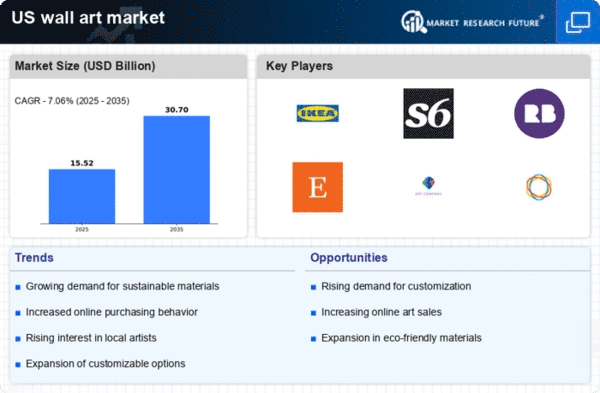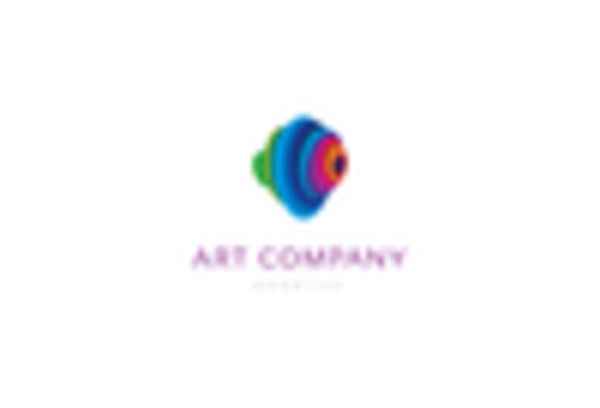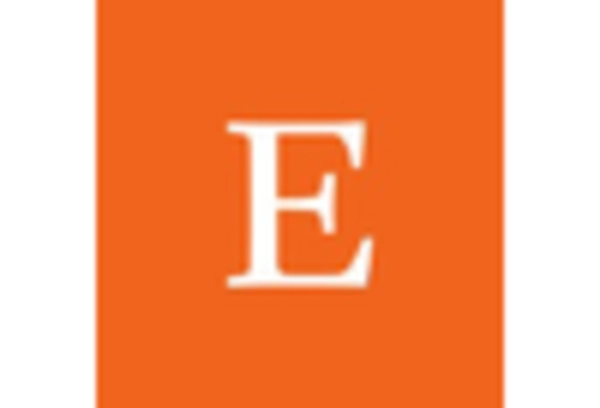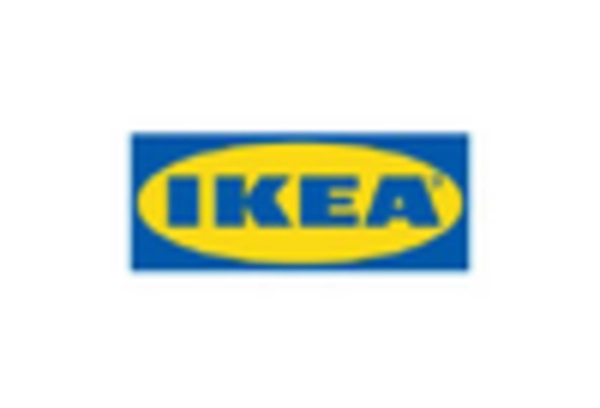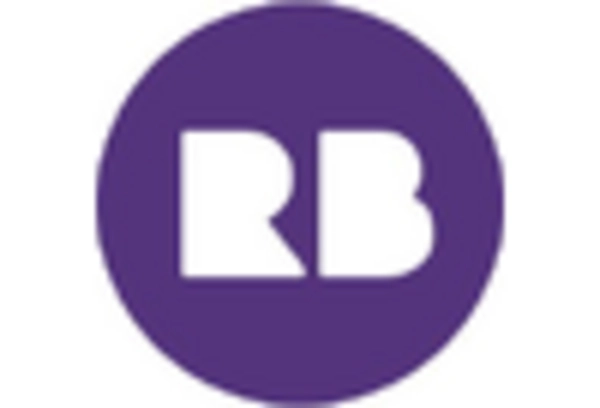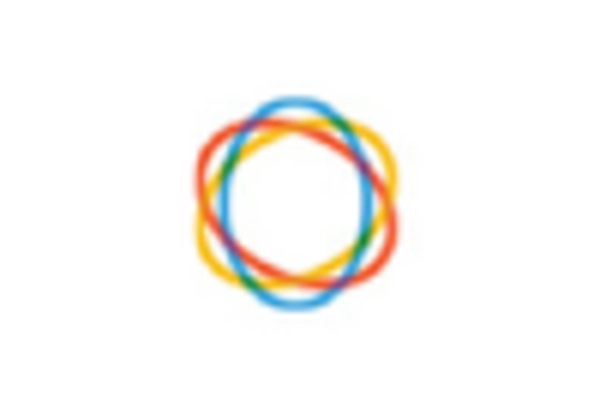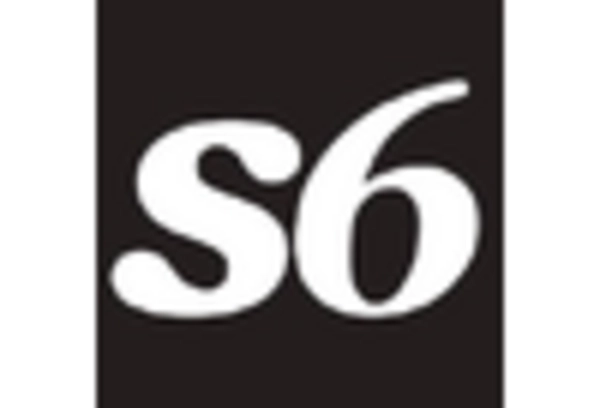Growth of E-commerce Platforms
The wall art market is witnessing a significant transformation due to the rapid growth of e-commerce platforms. With the convenience of online shopping, consumers are increasingly turning to digital marketplaces to purchase wall art. Data indicates that e-commerce sales in the home decor sector are expected to reach $30 billion by 2026, highlighting the shift in consumer behavior towards online purchasing. This trend is particularly relevant for the wall art market, as it allows for a broader reach and accessibility for both artists and buyers. The ability to browse a diverse range of styles and price points online enhances consumer choice, potentially leading to increased sales. As e-commerce continues to expand, the wall art market is likely to experience sustained growth, driven by the ease of access and the ability to discover unique pieces from various artists.
Increasing Demand for Home Decor
The wall art market is experiencing a notable surge in demand as consumers increasingly prioritize home decor. This trend is driven by a growing awareness of the importance of personalizing living spaces. According to recent data, the home decor segment, which includes wall art, is projected to grow at a CAGR of approximately 4.5% through 2026. This growth is indicative of a broader shift towards creating aesthetically pleasing environments, where wall art plays a crucial role. As individuals seek to express their identities and tastes through their homes, the wall art market is likely to benefit significantly from this trend. Furthermore, the rise in disposable income among consumers allows for greater spending on decorative items, further fueling the demand for wall art in various styles and formats.
Emergence of Art Subscription Services
The wall art market is experiencing a notable shift with the emergence of art subscription services. These platforms offer consumers the opportunity to receive curated wall art selections on a regular basis, catering to the growing desire for fresh and dynamic home decor. This model not only provides convenience but also introduces consumers to a variety of artists and styles they may not have encountered otherwise. Recent trends suggest that subscription services in the art sector are gaining traction, with an estimated growth rate of 15% annually. This indicates a potential for the wall art market to tap into a new consumer base that values novelty and convenience. As these services become more popular, they may reshape purchasing habits and preferences within the wall art market, fostering a culture of exploration and discovery.
Influence of Social Media on Art Trends
The wall art market is increasingly influenced by social media platforms, which serve as vital channels for artists and consumers alike. Platforms such as Instagram and Pinterest have transformed how art is discovered and purchased. Artists can showcase their work to a vast audience, while consumers can easily find inspiration for their decor. Recent statistics indicate that approximately 70% of consumers are influenced by social media when making purchasing decisions related to home decor. This trend suggests that the wall art market is adapting to a digital-first approach, where online visibility and engagement are paramount. As social media continues to evolve, it is likely that the wall art market will see an increase in sales driven by viral trends and influencer partnerships, further solidifying its position in the home decor landscape.
Rising Interest in Local and Emerging Artists
The wall art market is increasingly characterized by a rising interest in local and emerging artists. Consumers are becoming more inclined to support artists from their communities, seeking unique pieces that reflect local culture and creativity. This trend is evident in the growing number of art fairs and exhibitions that showcase local talent, providing a platform for artists to connect with potential buyers. Data suggests that approximately 60% of consumers prefer purchasing art from local artists, indicating a shift towards supporting homegrown creativity. This inclination not only enriches the wall art market but also fosters a sense of community and connection among consumers. As the demand for locally sourced art continues to rise, it is likely that the wall art market will adapt by promoting and highlighting the work of emerging artists, thereby enhancing the diversity and vibrancy of available offerings.


